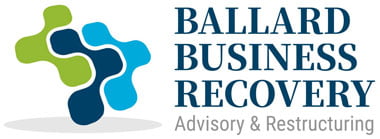Cash is king in business; it pays creditors and suppliers, allows businesses to expand, and provides a buffer should things go wrong or unexpected expenses arise. These benefits are valuable to businesses of all sizes. However, the stakes are especially high for small businesses that might have less margin for error compared to a larger or more established competitor.
Effective cash flow management is therefore key to the survival of a small business. We have outlined why this is the case in this article, as well as providing advice on how to proceed if you want to manage your cash flow more effectively.
Make Accurate Future Plans
As a small business, effective decision-making is essential. Funds are likely to be more limited than larger competitors and this means that just one ill-informed decision can have a hugely detrimental impact on the stability of the business. Accurate cash flow can reduce these risks as you will know exactly how much money the business has coming in and out at any given moment and can therefore much better predict how decisions will impact the future.
For example, if you are aware of a prolonged cash surplus, you may decide to make a long-term investment to grow the business. However, if the business is strapped for cash or anticipates that a large expense will make this the case in the coming months, you can make informed decisions and take proactive steps to mitigate the impact. This forward-thinking approach ensures your small business can balance the need to navigate future challenges whilst seizing new opportunities
Analyse Performance
Cash flow analysis plays a similarly critical role in allowing small businesses to analyse their overall financial performance. By regularly reviewing cash flow statements, you can identify trends and areas of inefficiency that may not be obvious from other financial data such as profit and loss statements. This can help you to identify wasted expenses or excessive business costs and therefore budget more effectively for this money to be spent elsewhere. Over time, this analysis will ensure that you catch any potential financial issues before they escalate, therefore enhancing the long-term viability of the business.
Build Long-Term Relationships
Maintaining healthy cash flow is also essential for building and sustaining relationships with suppliers, creditors and other stakeholders. When your business pays its bills on time and subsequently demonstrates good cash flow management, you foster trust and reliability. Over time, this can lead to stronger partnerships, enabling the business to secure more favourable terms and credit.
While this ability to build relationships is crucial for businesses of any size, it is particularly critical for small or new businesses. Small businesses will typically have less buying power than their larger competitors and therefore must work harder to achieve the same types of relationships and levels of trust. Having a reputation for financial stability can make a small business stand out where others may seem like risky investments and partnerships, thus helping to ensure long-term viability and growth.
Tips For Cash Flow Management
Given that cash flow is critical for small businesses, you must take appropriate steps to manage your cash flow effectively. There are a number of ways you can do this and unlock the benefits outlined in this article, including careful stock management and up-to-date invoicing.
However, if you do find that your small business is unable to maintain effective cash flow management or is experiencing cash flow problems, it’s important that you act quickly and effectively. Cash flow problems can quickly escalate and will not go away on their own, so you must seek help if you are struggling.
If your small business is experiencing cash flow difficulties, don’t hesitate to get in touch with the experienced team at Ballard Business Recovery. Our business rescue experts will talk you through the different options available, including ways to improve your cash flow and overcome the difficulties that may have arisen from poor cash flow management, so that you can make informed decisions and adjust your approach for the future.




